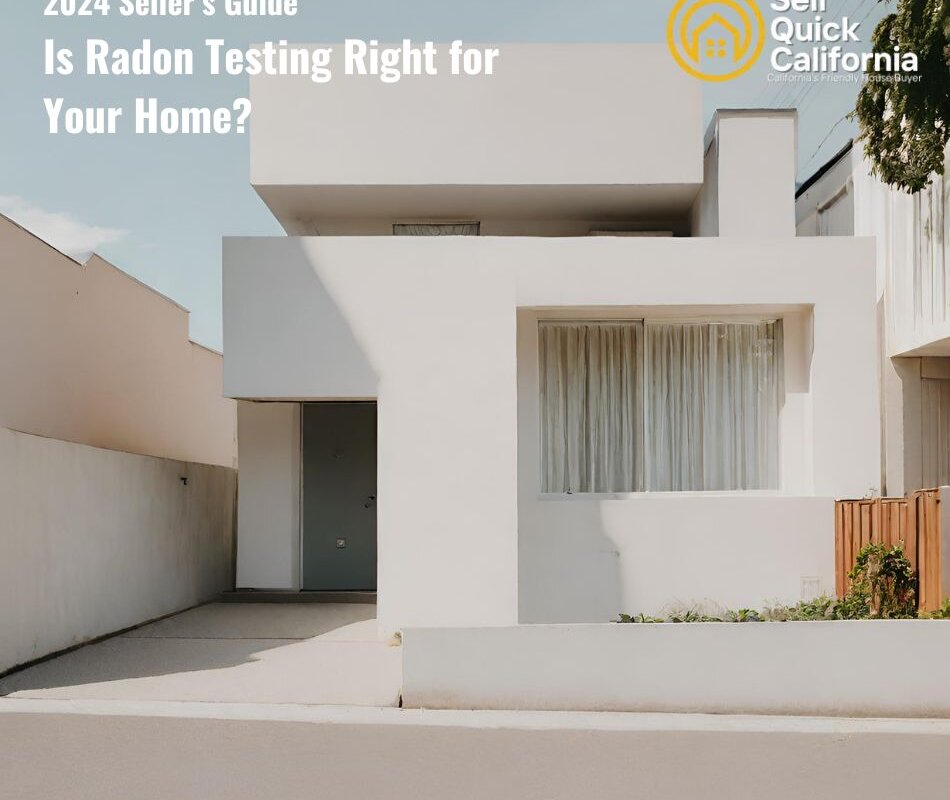You may not see it, smell it, or taste it, but it could be lurking in one out of every 15 homes in the U.S. We’re talking about radon, a silent, odorless gas present in homes across the nation. This radioactive substance poses serious health risks to humans. According to the Environmental Protection Agency, radon is responsible for over 20,000 cases of cancer annually, making it a primary cause of lung cancer, second only to smoking. The only way to determine if your home contains radon is through testing. But what if you’re looking to sell your home and it’s affected by radon? Keep reading to discover if radon testing is mandatory when selling a home and explore your options for selling a home affected by radon with Sell Quick California.
What’s the deal with radon in homes?
Let’s break it down. Radon, an invisible gas, forms when naturally occurring elements like radium, thorium, and uranium decay. These elements are commonly present in soil and rocks, often surrounding and beneath our homes.
While radon can dissolve into water, it primarily disperses through the air. Being dense, it seeps into buildings through crevices in walls and floors, around utility penetrations, and any other openings it can find. Once indoors, it tends to accumulate in lower areas such as basements and crawl spaces.
High levels of radon have been detected in homes nationwide, a fact highlighted by the EPA’s Radon Zone Map. This hazardous gas isn’t picky; it can infiltrate any type of structure, from historic residences to newly constructed houses. And when you’re considering selling your home, understanding radon and its implications becomes crucial, especially with Sell Quick California.
Is it time for a radon test in your home?
Since radon is invisible and odorless, testing is the only way to know if it’s present. Given its prevalence and health risks, every home should undergo testing.
The EPA recommends testing every two years or prior to selling your home, as prospective buyers often request these results. If test results reveal radon levels at or above 4 pCi/L (picocuries per liter of air), it’s a cause for concern.
Radon breaks down into radioactive particles that, when inhaled, can lodge in the lungs and cause cellular damage. According to the American Cancer Society, prolonged exposure to high radon levels increases the risk of cancer.
The danger escalates with higher radon levels and prolonged exposure. Regular testing is essential to monitor radon levels and safeguard your home’s occupants, a vital step especially when considering selling your home with Sell Quick California.

Curious about radon testing?
Let’s dive in. Once you understand its importance, you might wonder how these tests actually work. Essentially, a test device is placed in the lowest regularly inhabited area of your home, positioned about 20 inches above the floor, and left there for a specified duration. Since radon levels can fluctuate, it’s crucial to monitor them over time.
You have the option to conduct the tests independently or hire a professional. A long-term test spans 90 days, providing a comprehensive assessment, while you can opt for two short-term tests, each lasting a few days.
Should the results reveal 4 pCi/L or higher, it’s time to consider investing in radon mitigation services to address the issue. While mitigation isn’t inexpensive, implementing a radon mitigation system can effectively reduce levels to a safer range, ensuring peace of mind for you and potential buyers when selling your home with Sell Quick California.
Now that you’re acquainted with radon, you might be pondering its impact on selling your home.
Elevated radon levels can deter potential buyers, posing both a safety concern and potential financial burden for mitigation.
In many states, sellers are obligated to disclose radon test results to prospective buyers. Additionally, the EPA advises testing all homes as part of the inspection process.
For buyers, the prospect of purchasing a home with heightened cancer risks can be daunting, leading them to reconsider or negotiate their offer downward. As a seller, navigating the expense and hassle of radon testing and mitigation during the selling process can be overwhelming.
Sell Quick California offers a solution to the radon dilemma. We purchase homes in their current condition, even those with potential health concerns like radon. Say goodbye to worries about elevated radon levels—receive a solid offer immediately and close in as little as 7 days. Don’t let radon stand in the way of your next move. Sell with confidence and ease with Sell Quick California.

